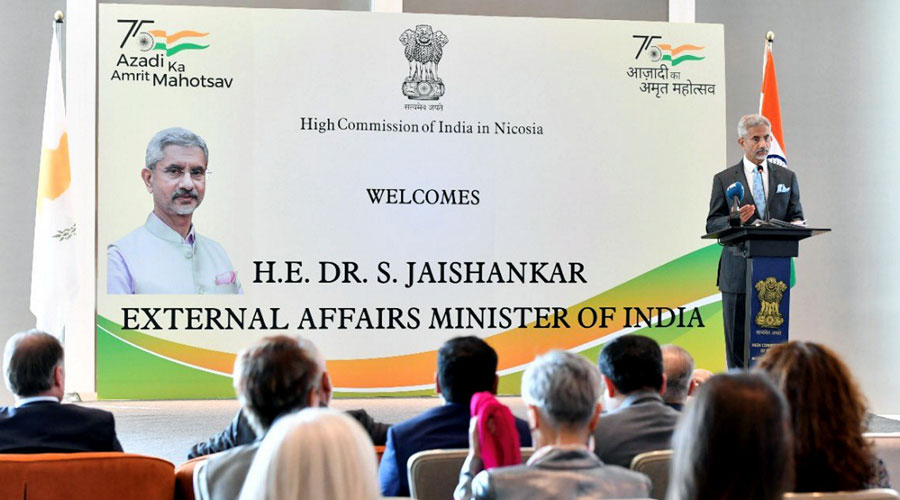India will not agree to any attempt to change the Line of Actual Control (LAC) unilaterally by China, External Affairs Minister S Jaishankar has asserted, as he underlined that New Delhi's relations with Beijing are "not normal" and there would be no compromise on core issues.
Addressing the Indian community in Cyprus on Friday during his first official visit to this Mediterranean country, Jaishankar, in a veiled attack on Pakistan, also said that terrorism cannot be used as a tool to force India to the negotiating table.
Jaishankar said India has challenges on its borders, which intensified during the Covid period.
"Today the state of our relations with China is not normal because we will never agree to any attempt to change the Line of Actual Control unilaterally," he said.
Indian and Chinese troops clashed along the Line of Actual Control (LAC) in the Tawang sector of Arunachal Pradesh on December 9 and the face-off resulted in "minor injuries to a few personnel from both sides", according to the Indian Army.
It is the first major clash between the Indian and Chinese armies since the fierce face-off in the Galwan Valley in June 2020 that marked the most serious military conflict between the two sides in decades.
The ties between the two countries froze since then with India making it clear that peace and tranquillity at the border is the sine qua non for the overall development of bilateral ties.
The two countries have held 17 rounds of talks so far to resolve the standoff.
In his speech, Jaishankar said no country has suffered from terrorism as much as India.
"We want good neighbourly relations with everybody. But good neighbourly relations doesn't mean excusing or looking away or rationalising terrorism. That we are very clear," he said without naming any country.
"We will never normalise it. We will never allow terrorism to force us to the negotiating table," he said.
Relations between India and Pakistan have often been strained over the Kashmir issue and cross-border terrorism emanating from Pakistan.
India has repeatedly told Pakistan that it desires normal neighbourly relations with Islamabad in an environment free of terror, hostility and violence.
In field of national security, Jaishankar said it was very clear from the policies and performance of the Modi government that "on core issues, there will be no compromise." On the national security side, "I can share with you a picture of firmness," he said.
"I can say that at this time there is a lot of expectation from the world about India. Because we are seen today as strong economy, as a country which will contribute to solving the problems facing the world.
"We’re also seen as a country which is independent, which has the courage to stand up when it has to stand up. We have the ability to talk to everybody to get people around the table at one time," Jaishankar said, apparently referring to Prime Minister Narendra Modi's efforts to bring Russia and Ukraine to end the conflict.
The fact that India has assumed the G20 presidency from December 1, "we’ve definitely reassured the world that at a very difficult time of global politics, the presidency in hands of India. We’ll handle the presidency in a way to make the world, understand India and appreciate the diversity of India more,” Jaishankar said.











